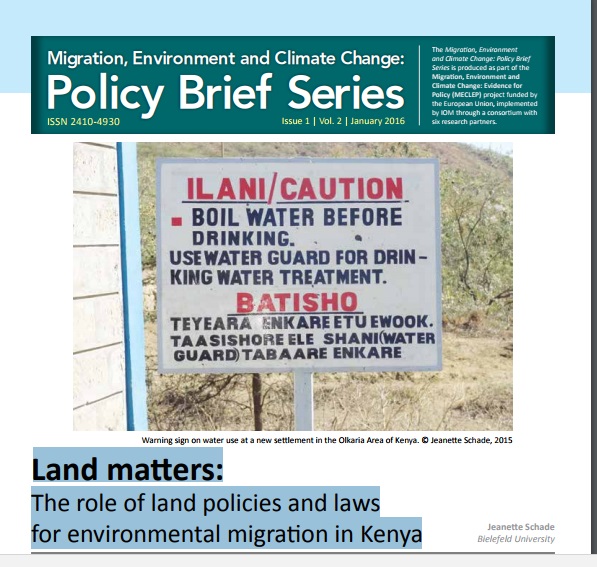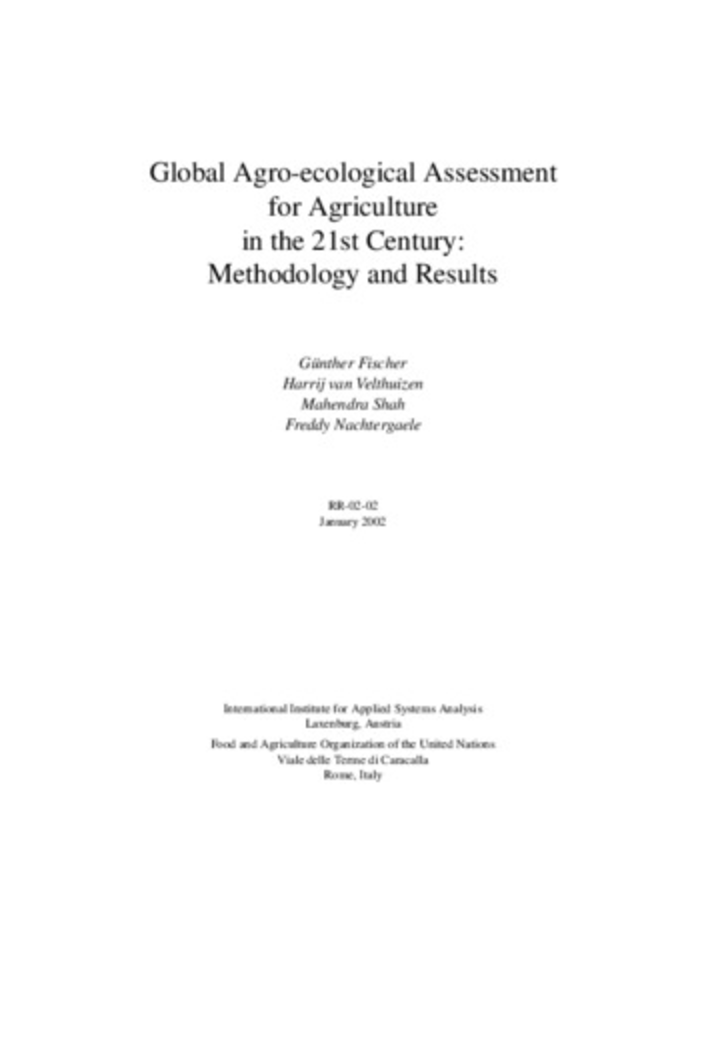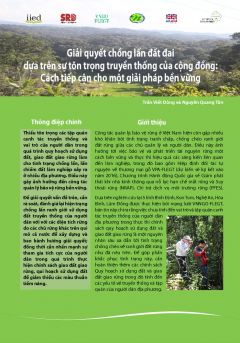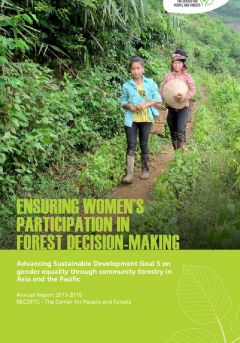Land matters: The role of land policies and laws for environmental migration in Kenya
Matters of environmental migration are frequently looked at from a humanitarian perspective.1 This policy brief will instead look at it with a lens focusing on land issues. The question of environmental migration is inevitably linked to the question of land for several reasons. First, climate and environmental change trigger and accelerate the loss of land due to sea-level rise, coastal erosion, landslides and other forms of land degradation.








